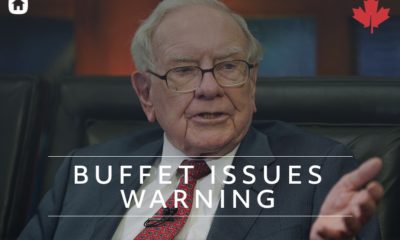After five years as a freelancer, Pam Lau has found a bookkeeping system that works for her.
The Toronto-based photographer — who incorporated her business and applied for a company credit card as soon as she could after going freelance in 2014 — has her record-keeping routine down pat.
She uses one credit card for all business-related expenses (such as equipment and transportation) which is synched to her accounting software, Freshbooks. The software automatically records and categorizes her expenses, and Lau backs this record up with a receipt log. She also lets Freshbooks handle her income-related tasks, like sending invoices and payment reminders to clients on an automated basis.
Lau checks and updates her books around the same time every week to make sure her software has correctly recorded all funds coming in and going out. She says staying regimented in doing so has made paying self-employment taxes much easier over the years.
“The bookkeeping, it has to be a constant process,” she says. “I’m always checking up on how the expenses are synching up and categorizing them.”
Come tax season, Lau hands all of these organized documents off to her accountant, who prepares and files her tax return for her. She says maintaining healthy bookkeeping habits year-round and turning to a third-party professional for help is always “a huge relief” come spring.
But Lau’s bookkeeping process hasn’t always been this seamless: Her first few months as a freelancer were characterized by “a lot of trial and error,” she says. In fact, many self-employed Canadians struggle to establish sustainable book-keeping routines, which makes tax preparation all the more stressful.
That’s where software like Freshbooks, Quickbooks, Zipbooks, Xero, and others comes in, products designed explicitly to help freelancers and small business owners stay organized and on top of their finances year-round.
Most of these products come with fees ranging from $10 to $50 per month, based on the desired level of service. While many entrepreneurs find accounting software worth the cost, others find it beyond their means and opt to keep their books manually, using Microsoft Excel, Google Sheets, or pen and paper.
The latter works for Victor Bateman, accountant at Artbooks, a Toronto-based tax office for artists and entrepreneurs. He’s used the same system for his entire working career, most of which was spent self-employed as a musician.
“I had a book in which I kept the date … where I played, who I played with or for and how much money I made, and at the end of the year, I would just tally that up,” Bateman says. “And for expenses, I kept receipts and put them in an envelope, and once the year was over at some point I would gather all the receipts and put them into categories, tally them up and deduct that from my gross.”
Matt Baker, senior vice president of corporate development and international expansion at Freshbooks, admits the majority of freelancers still go the “analog route.”
Baker says there’s nothing wrong with manual record keeping, which may actually work better for new freelancers who are still wrapping their heads around the do’s and don’ts of paying self-employment taxes.
But those opting to go the analog route should keep in mind a few essentials, Baker says. Keep two separate logs, one for income and one for expenses, and be diligent about recording key details on both.
“You don’t have to get super complicated,” Baker says. “You don’t have to have 35 columns of different information, but there are some key columns, like date, client, amount.”
“You can also have a column where you match it to an invoice,” he adds, noting that the key goal in bookkeeping is to consolidate information.
Gone are the days when handing a shoe box full of receipts to an accountant is the norm, he says, but it remains essential to keep all information on money in and money out in one place and, if possible, to back these records up on a hard drive or cloud-based program like Dropbox or Google Docs.
“Do the best that you can to stay diligent and just have good record keeping habits,” Baker says. You’ll thank yourself for it.
This report by The Canadian Press was first published Feb. 25, 2020.
Audrey Carleton, The Canadian Press

 Buying a Home5 years ago
Buying a Home5 years ago
 Credit6 years ago
Credit6 years ago
 5 Mortgage Secrets6 years ago
5 Mortgage Secrets6 years ago
 Business4 years ago
Business4 years ago
 Buying a Home6 years ago
Buying a Home6 years ago
 5 Mortgage Secrets6 years ago
5 Mortgage Secrets6 years ago
 Business4 years ago
Business4 years ago
 Buying a Home6 years ago
Buying a Home6 years ago






